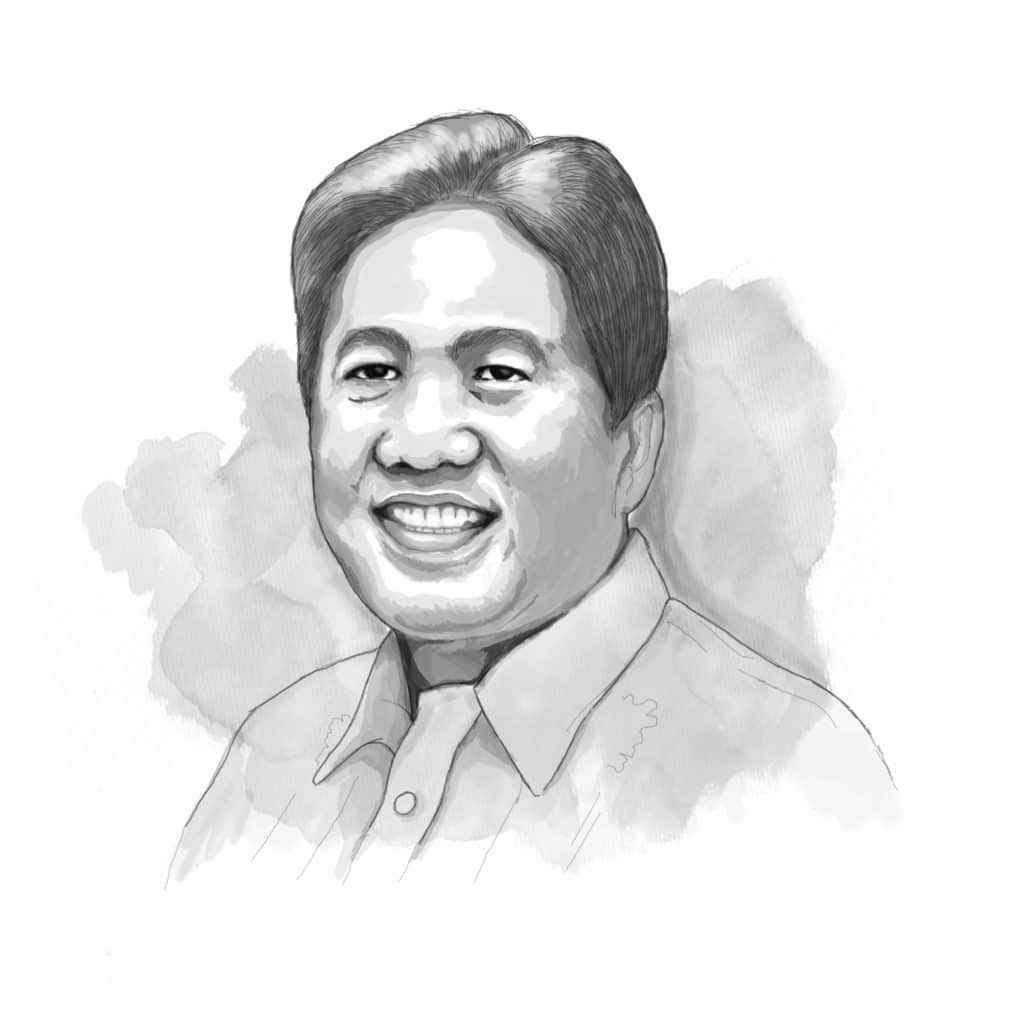Hen Lin story: Damayan Spirit, quality consciousness drive business excellence and prosperity
By Sonny Coloma
ENDEAVOR

Inside a three-story building on a side street of Don Arcadio Santos Avenue, more popularly known as Sucat Road in Parañaque, about half-a-kilometer from the South Luzon Expressway (SLEX), production workers clad in white smocks, white hair bonnets, gloves, and blue shoe sleeves, go about their work with quiet efficiency, in a controlled temperature environment.
M & H Food Corporation stands for Manas and Hernandez, the founder-owners of the enterprise. Mariano ‘Jun’ Manas and Cely Hernandez-Manas invited a small group of Rotarian friends and their spouses to a tour of the production facilities of Hen Lin, the well-known fast-food company with hundreds of stores throughout Luzon, found in most big malls and convenience outlets.
Hen Lin stands for Henry and Lyn, son and daughter of Jun and Cely. Founded 40 years ago as a home-based enterprise, it has grown in size and stature by dint of its quality food products. Hen Lin’s two leading products, siopao and siomai, are manufactured in accordance with Triple A quality standards – as certified by the Department of Agriculture’s National Meat Inspection Service that conducts Hazard Analysis Critical Control Point (HACCP) analysis covering the complete cycle from receiving of raw materials up to distribution in stores.
Framed on the wall are several testaments – “Our Corporate Vision: To be the leading producer of high-quality Asian food products.”
“Our Corporate Mission: To be able to serve God and our country through our corporate activities. To provide quality products, excellent service, and value for money to our customers. To inculcate the right work values to all employees. To earn reasonable profit for the company. To provide opportunities for growth and development for all employees.”
A further refinement of the vision-mission statement is expressed in “Our Business Philosophy: “We are in business...To serve God and serve him well through our corporate activities. To produce quality and tasty food products and to serve them efficiently at reasonable prices so that customers get value for their money. To be a large professional company that is fair, sincere in all its dealings with its customers, shareholders, and with all its publics. To earn a reasonable profit for the company and its shareholders.”
Another frame is entitled Damayan Spirit:
“Damayan Spirit is a way of life at M & H Food Corporation where every employee serves God by respecting one another...is a way of serving our people (with) resolution and healing...allows us to collectively strive to always improve ourselves, our service, our processes, and our product quality for the good of the whole company...is reaching out or being there unconditionally...helps our employees realize their dreams and aspirations...gives us encouragement, energy, and sustainability in everything that we do...In every given circumstance, Damayan Spirit keeps our hopes alive and bright. So let us keep Damayan Spirit always in our hearts and in our minds.”
“He who loves and respects his parents will do well in life.” This is the credo of Hen Lin co-founder Mariano ‘Jun’ Manas and his wife Cely, who embody humility and simplicity, that is better expressed in the Filipino equivalent, kababaang-loob. Thus, have they have earned the respect and admiration of business partners and friends.
Serving God and country is their over-arching business purpose. Producing quality products that satisfy customers is their chosen way of manifesting love of God and neighbor. The business exists in ways that are beneficial to the employees and their families, and, ultimately, to their communities. By generating jobs, and paying taxes on profits earned, Hen Lin contributes to the creation of social goods — such as infrastructure — that enhance the well-being of the citizenry. Aside from physical infrastructure such as roads, bridges, airports and seaports, there is social infrastructure, which includes education and nutrition. Finally, there is also technological or digital infrastructure that facilitates business transactions and delivery of goods and services.
The growth of Hen Lin into a “large professional community” contributes to the betterment of the locales where its stores operate, and to the nation-at-large.
I have known Jun and Cely Manas for more than 25 years, as fellow Rotarians. Shunning highly visible publicity and promotion, they go about their business by keeping a low profile and with minimal advertising. It was only a few months ago, when Hen Lin marked its 40th year last May, that they put out a huge billboard visible from the SLEX Skyway.
In my view, Jun and Cely Manas of Hen Lin are exemplary leaders of Spirit-Led Organizations that are animated by Diwa and Kapwa.
In 2017, the People Management Association of the Philippines (PMAP) published two books, namely, DIWA: Spirit Led Organizations in the Philippines; Charting Pathways to Excellence; and KAPWA: Filipino Workplace Ethos for Workplace Excellence and Competitiveness.
Today, we have an expanded core group of Diwa-Kapwa advocates including Jun Cabochan, a social entrepreneur who heads Pandayan Bookshop, a Luzon-based retail chain; Grace and Virgilio Zata, who are global talent specialists; Ramon Segismundo, an international management consultant; Bobby Galvez, an independent human resource management and talent development consultant; Edgardo Soriano and Rico de Guzman, both PMAP past presidents, who serve as senior advisers to leading companies; Lin Mukhi, also a PMAP past president, and like Faye Corcuera, advises leading corporates and social enterprises.
We have realized that, beyond the circle of companies and enterprises that we have been focusing on, there could be scores of other organizations that are, intentionally, Spirit-led (Diwa) and solidarity-focused (Kapwa) enterprises, seeking to promote the well-being of people, as the fulfillment of their faith-based mission. May their tribe increase!